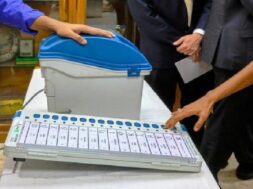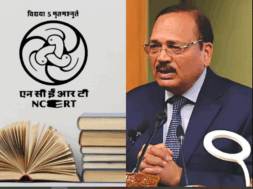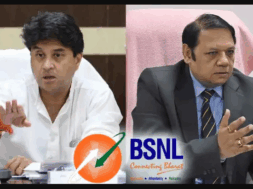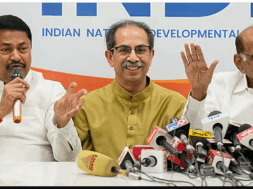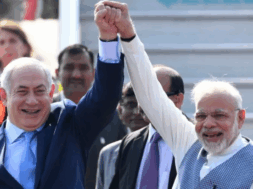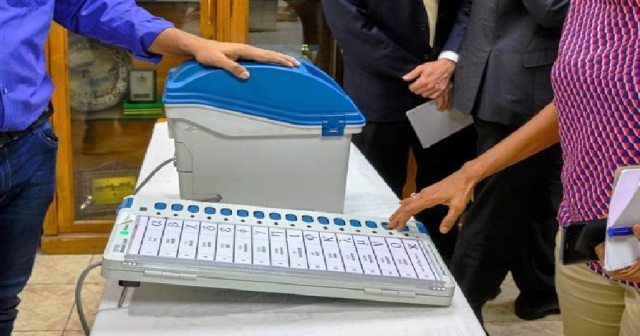
Manas Dasgupta
NEW DELHI, Jan 16: The Election Commission of India on Monday deferred the physical demonstration of the proposed Remote Electronic Voting Machines (RVM) after a number of opposition parties expressed strong reservations about deploying the machines in the elections at least for now.
After the opposition parties sought more time for discussions on the issue, the ECI decided to postpone the demonstration slated for Monday and extended the date for political parties to submit written responses to February 28 from January 31, sources said.
“The overall view of most of the political parties is that they unanimously opposed the proposal for RVMs as it is still very sketchy. It is not concrete in nature and there are huge political anomalies and problems in the proposal such as the definition and number of migrant workers not being clear. We have made up our minds to oppose the proposal of RVM,” said Congress leader Digvijaya Singh after an all-party meeting in New Delhi.
Opposition parties questioned the need to deploy remote voting machines and urged the Election Commission (EC) to address the issue of urban apathy towards the poll process. The EC was scheduled to showcase the remote electronic voting machine (RVM) prototype for migrant voters to representatives of political parties on Monday.
“No Opposition party wants to see the demonstration of an RVM. First, the issue of the need to have such a machine should be settled,” Digvijaya Singh told reporters after participating in a meeting of political parties convened by the EC for the demonstration of the workings of an RVM. The former Madhya Pradesh Chief Minister said he felt that there would be no RVM demonstration till there was a consensus on having one. No political party is prepared to see the demonstration, he said.
The poll panel had invited eight recognized national parties and 57 recognized State parties for a demonstration. The letter stated that they have been invited for a “discussion on improving voter participation of domestic migrants using remote voting.”
While inviting parties for the demonstration of the prototype, the poll panel had also issued a concept note on the technology. Parties were also asked to give in writing their views on issues such as changes required in the law to allow the use of RVM.
If implemented after stakeholder consultations, migrant voters do not need to travel to their home districts to exercise their franchise. Terming counting of votes cast at remote booths and their transmission to the returning officer in other states as a “technological challenge”, Election Commission officials had earlier said RVMs will be developed as “a robust, fail-proof and efficient stand-alone system” based on existing electronic voting machines and will not be connected to the internet.
The multi-constituency remote EVM, developed by public sector undertaking Electronics Corporation of India Ltd (ECIL), can handle up to 72 constituencies from a single remote polling booth. ECIL and Bharat Electronics Ltd are the two PSUs manufacturing the EVMs. The RVM is a modified version of the time-tested model of M3 (Mark 3) EVMs to enable voting at remote polling stations—polling stations outside home constituency, for domestic migrants. The initiative, if implemented, can lead to a “social transformation” for migrants, THE EC had said last month.
Mr. Singh said the Nationalist Congress Party and the Samajwadi Party were also on board the Opposition deliberations, though their representatives were not present at the meeting. “The definition of migrant labour, and the number of migrant labour is all not very clear. Therefore, we all have unanimously made up our mind to oppose the proposal of RVM,” he said.
At the same time there have been numerous concerns about the trust on EVM machines and all those concerns which have been documented after a detailed discussion with computer science experts, professionals and cryptographers will be raised, he said.
Mr. Singh noted that the civil society had given a memorandum to the EC in May 2022 but the poll panel had not even responded to them. Responding to a question, Mr. Singh said all parties that had expressed concern over EVMs and RVMs were invited. He said BSP chief Mayawati has also spoken against EVM. “We invite her to join this initiative,” he said.
The principal Opposition Congress has taken a dim view of the Election Commission (EC)’s proposal for the RVMs questioning its entire process — from the identification of remote voters to the counting of votes cast in different locations. According to sources, the chairman of the Congress’s data department, Praveen Chakravarty, made a presentation to the Opposition leaders highlighting multiple concerns with regard to the EC’s remote voting plan.
The Congress leader raised questions about the identification and registration of the remote voters of a constituency, asking how would the duplication of the same voter in two places be avoided. On the voting process, he questioned how would the location of the remote polling stations be decided.
Chakravarty also flagged concerns about the logistics for political parties, candidates and their representatives on the issue, asking how would polling agents monitor remote voting in different locations away from the constituency. His presentation also raised questions on the counting process as to how would the VVPAT slips be transported and stored, and whether the remote votes be counted separately or mixed with other votes before counting.
While the EC has said the need for remote voting arose as there are around 30 crore migrants in the country, who stay away from their home constituencies, the Congress leader questioned the number, saying it was unclear how many of these migrants need the option of voting from their place of work. Any plan for remote voting should overcome the “trust deficit” on the issue, he said.
